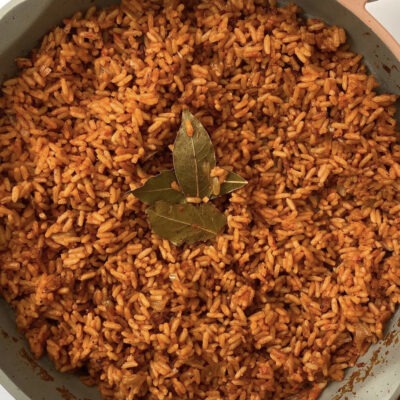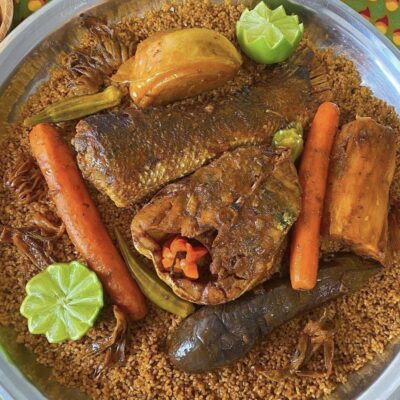Ingredients
For the Msemen dough
- 300g
Flour
- 300g
Extra Fine Semolina
- 4g (1/2 teaspoon)
Chemical Yeast
- 15g
Sugar
- 10g
Salt
- 350ml
Water
Directions
The Msemen is an essential bread in Maghreb. It can be eaten at any time of the day and goes very well with all types of dishes. You can also find our recipe for Ethiopian gluten-free flatbread: injera!
Msemen : Discover this delicious Moroccan bread
Bread in Moroccan cuisine
Moroccan cuisine is renowned throughout the world for the richness and flavors of its traditional dishes. Among these delights, Msemen occupies a place of choice. This Moroccan bread, appreciated for its flaky texture and its authentic taste, is a real must in Moroccan gastronomy. It is simply a kind of Moroccan pancake. In this article, we invite you to dive into the world of this traditional Moroccan bread, to learn more about its origin and characteristics, and to discover how to taste it.
Origins and characteristics of Msemen
Msemen has a long history in Moroccan cuisine. Originating from the Maghreb, this handmade bread has been passed down through generations and has become a symbol of traditional Moroccan cuisine. Its preparation requires know-how and patience, but the result is worth it.
Msemen is distinguished by its unique texture. Its dough, made from flour, fine semolina, warm water and a touch of salt, is rolled out into a thin rectangular layer and folded into several layers. This gives the Msemen its irresistible flaky texture. When cooked in a pan with a little oil, it acquires a beautiful golden color.
Importance of Msemen in Moroccan gastronomy
Msemen has a prominent place in Moroccan meals. It is often served at breakfast, accompanied by mint tea or coffee. This Moroccan bread is also present on special occasions, family celebrations and religious holidays such as Eid-el-Fitr. It is appreciated for its versatility and can be enjoyed at any time of the day.
Nutritional values and calories of Msemen
In addition to its delicious taste, Msemen also has nutritional benefits. Its composition based on flour and fine semolina makes it high in carbohydrates, protein and fiber. These nutrients are essential to maintain energy throughout the day. Moreover, this arabic bread is prepared with simple and healthy ingredients, without additives or preservatives.
However, this Moroccan bread is quite fatty. Indeed, 100g of Msemen will bring you about 500 calories.
Traditional accompaniments: what to eat the Msemen with?
Msemen is traditionally eaten with honey, butter or jam. The combination of the flaky texture and the sweet taste of honey is a real treat for the taste buds. Some prefer to enjoy it with cheese, yogurt or eggs for a more substantial meal. The possibilities of accompaniments are vast and can be adapted according to individual preferences.
Where to taste this traditional Moroccan bread?
In Morocco, Msemen can be enjoyed in many places. Traditional cafes, local markets and traditional restaurants often offer it on their menus. These authentic establishments will allow you to taste Msemen prepared in the traditional way, with unique flavors and techniques passed down from generation to generation. If you’re traveling to Morocco, be sure to stop by and try this delicious Arabic bread.
Make this traditional recipe at home!
By making Msemen at home, you can recreate the Moroccan culinary experience wherever you are. The traditional recipe takes a little practice, but once you master the art of folding and baking, you can treat your loved ones to this delicious and authentic bread. There are many videos and tutorials online that will guide you step by step in the preparation of this morrocan bread.
Msemen is a true symbol of Moroccan gastronomy, history and culture. Its flaky texture and authentic taste make it a very popular Moroccan bread. Whether you taste it in a traditional café in Marrakech or prepare it at home, this Arabic flat bread is an invitation to travel through the flavors of Morocco. So let yourself be seduced by this Moroccan delight!
Steps
1 Done | Preparation of the Msemen doughIn a bowl or in a mixer, add the flour, the fine semolina, the salt, the sugar and the baking powder. Make a hole in the center and add warm water as you go and mix well until you obtain a smooth and homogeneous dough. Knead with your hands if you don't have a mixer. Knead the dough for about 10 to 15 minutes until it becomes soft, elastic and slightly sticky. |
2 Done | Divide your dough into dough piecesOnce your Msemen dough is smooth, elastic and sticky, oil your hands well and form small dough pieces, as many small balls of dough as the number of Msemen you want to make. The balls should be about the size of an egg. |
3 Done | Make your own MsemenOn a well-oiled work surface, roll out your balls of Msemen dough and then roll them out into a very thin, almost transparent circle. Then sprinkle them with oil and a little fine semolina. |
4 Done | Cooking your MsemenHeat a pan with sunflower oil. Cook your Msemen until they are golden brown. Turn your Msemen several times to check for doneness and allow them to brown evenly. As soon as the bread puffs up, remove it and move on to cook the next ones. |
5 Done | Your Msemen are ready!After cooking, keep your Msemen in a clean tea towel to keep them warm and tasty! |











